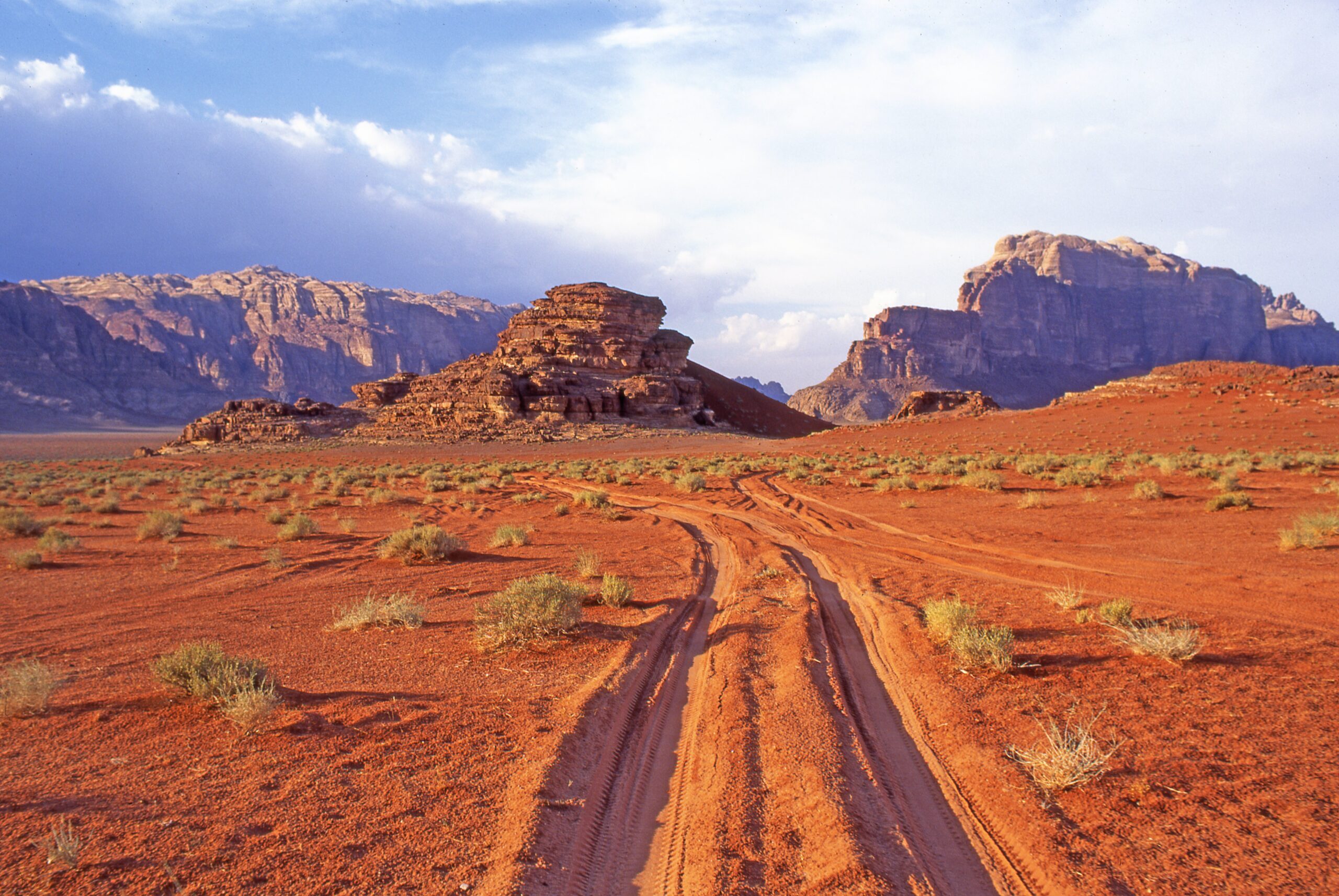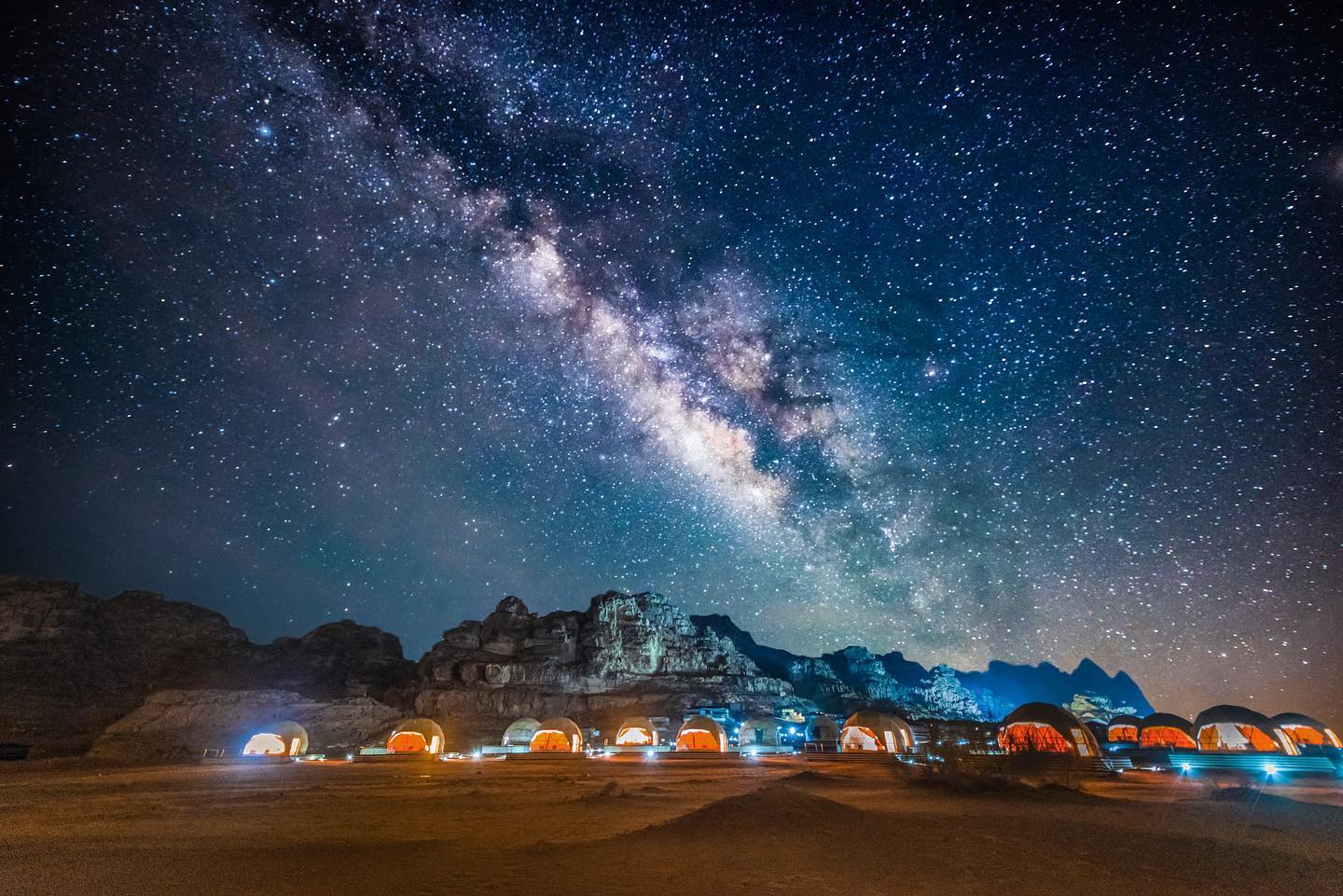
Jordan is a country with a long and complex history, and many prophets are believed to have passed through or had connections to the region over the centuries. Some of the prominent prophets associated with Jordan include:
- Prophet Lot (Lut in Islam): Lot is mentioned in Islamic tradition as a prophet who lived in the cities of Sodom and Gomorrah, which are believed to have been located in the region of the Dead Sea in modern-day Jordan.
- Prophet Aaron (Harun in Islam): Aaron, the brother of Prophet Moses (Musa), is mentioned in Islamic tradition as having a connection to the area around Mount Nebo in Jordan. It is believed that he died there.
- Prophet Moses (Musa in Islam): Mount Nebo in Jordan is significant in Islamic tradition as the place where Moses is said to have viewed the Promised Land before his death.
- Prophet John the Baptist (Yahya in Islam): According to Islamic tradition, John the Baptist is believed to have been born in the area of Al-Maghtas (Bethany Beyond the Jordan), along the Jordan River, where he later baptized people.
- Prophet Elijah (Ilyas in Islam): Elijah is associated with the area of Al-Maghtas (Bethany Beyond the Jordan) in Jordan, where a shrine and archaeological site related to his activities can be found.
- Prophet Jethro (Shu’ayb in Islam): Jethro, who is often identified with the figure of Shu’ayb in Islamic tradition, is believed to have been a prophet and is associated with various locations in Jordan.
It’s important to note that these associations are based on religious and historical traditions and may vary among different religious groups. Jordan’s historical and religious significance, along with its biblical and Islamic heritage, has made it a place of great importance in the Abrahamic faiths, and it is often associated with the stories and journeys of various prophets.
The history of Jordan is rich and diverse, with a long and complex timeline that includes ancient civilizations, foreign conquests, and significant regional developments. Here is a brief overview of the history of Jordan:
1. Ancient Civilizations:
- Jordan’s history dates back to ancient times, with evidence of human settlements dating to the Paleolithic period (approximately 250,000 years ago).
- The region was home to several ancient civilizations, including the Ammonites, Moabites, and Edomites, who inhabited the area before the arrival of the Hebrews.
2. Biblical and Historical References:
- Jordan features prominently in the Bible, with references to cities like Jericho and the Jordan River in biblical narratives.
- The ancient city of Petra, the capital of the Nabataean Kingdom, was a major center of trade and culture during Hellenistic and Roman times.
3. Roman and Byzantine Period:
- Jordan was part of the Roman Empire from the 1st century BCE to the 4th century CE, and many Roman cities, roads, and infrastructure were built during this time.
- In the 4th century, Jordan became part of the Byzantine Empire, which had a lasting influence on the region.
4. Islamic Era:
- In the 7th century, during the Islamic expansion, Jordan came under Muslim rule, marking the beginning of the Arab-Muslim era in the region.
- Amman, the modern capital of Jordan, was founded during this period and was known as Philadelphia.
5. Crusader and Ottoman Rule:
- During the Middle Ages, Jordan saw the rise and fall of various empires, including the Crusader Kingdom of Jerusalem, which controlled parts of the region.
- Jordan came under Ottoman rule in the 16th century and remained part of the Ottoman Empire until the early 20th century.
6. World War I and the Hashemite Kingdom:
- After World War I, the Ottoman Empire was dismantled, and the area that is now Jordan was placed under British administration, forming part of the League of Nations mandate called Transjordan.
- In 1946, Transjordan gained independence, and in 1949, it was officially recognized as the Hashemite Kingdom of Jordan under the leadership of King Abdullah I.
7. Arab-Israeli Conflicts:
- Jordan played a role in the Arab-Israeli conflicts, including the 1948 Arab-Israeli War and the 1967 Six-Day War, during which it lost control of the West Bank and East Jerusalem to Israel.
- Jordan later disengaged from the West Bank, officially severing administrative ties in 1988.
8. Modern Jordan:
- Jordan has since been a relatively stable and moderate Arab nation. King Hussein, who ruled from 1952 to 1999, played a key role in stabilizing the country and seeking peace in the region.
- Jordan has been involved in various peace efforts, including the Jordan-Israel peace treaty signed in 1994.
- Today, Jordan is a constitutional monarchy with King Abdullah II as the current ruler. It continues to play a significant role in regional diplomacy and is known for its historical and cultural heritage.
The history of Jordan reflects the diverse cultural influences and historical events that have shaped the country into the modern nation it is today. Jordan’s rich history, archaeological sites, and ancient ruins continue to attract tourists and scholars from around the world.
Jordanian culture is a rich and diverse tapestry that reflects the country’s history, traditions, and values. Here are some of the top elements of Jordanian culture:
- Hospitality (Diwan): Jordanians are renowned for their warm and generous hospitality. Guests are treated with great respect and are often offered tea, coffee, and sweets upon arrival. Sharing meals with guests is a common practice, and Jordanians go to great lengths to make visitors feel welcome.
- Arab-Islamic Values: Jordan is an Arab-Muslim country, and Islamic values play a significant role in the culture. Respect for elders, modest dress, and adherence to Islamic customs are important aspects of daily life.
- Family and Community: Family is central to Jordanian culture, and strong bonds among family members are highly valued. Extended families often live close to one another, and gatherings with relatives are frequent and important.
- Traditional Dress: Jordanians often wear traditional clothing, with many men wearing the dishdasha (a long robe) and women wearing the abaya (a long cloak) and headscarves. Traditional clothing varies by region and can include the keffiyeh (headscarf) for men.
- Food and Cuisine: Jordanian cuisine is a highlight of the culture. Dishes like mansaf (a lamb and rice dish), falafel, shawarma, and mezze (a variety of small dishes) are popular. Sharing meals with family and friends is a cherished tradition.
- Music and Dance: Traditional Jordanian music includes folk songs and the use of instruments like the oud and the darbuka. Dabke, a traditional line dance, is often performed at weddings and other celebrations.
- Arts and Crafts: Jordan has a rich tradition of arts and crafts, including pottery, weaving, and mosaics. The city of Madaba, in particular, is known for its intricate mosaic work.
- Language: Arabic is the official language of Jordan, and the Jordanian dialect is commonly spoken. English is also widely understood, especially in urban areas.
- Religious Tolerance: Jordan is known for its religious tolerance, with a diverse population that includes Christians and Muslims living peacefully side by side. Religious holidays and traditions are respected and celebrated.
- Holidays and Festivals: Jordanians celebrate both Islamic and Christian holidays. Eid al-Fitr and Eid al-Adha are major Islamic festivals, while Christmas and Easter are celebrated by the Christian community. The country also observes Independence Day and the birthday of King Abdullah II.
- Bedouin Culture: Jordan has a significant Bedouin population, and their nomadic way of life is an integral part of the country’s culture. Visitors can experience Bedouin hospitality and traditions in places like Wadi Rum.
- Historical and Archaeological Sites: Jordan’s rich history is evident in its numerous archaeological sites, including Petra, Jerash, and the Desert Castles. These sites are not only significant historically but also culturally.
Jordanian culture is a blend of ancient traditions and modern influences, making it a fascinating and welcoming destination for travelers seeking to explore the Middle East’s cultural heritage.


Stargazing in Wadi Rum, Jordan, is an exceptional experience due to its remote desert location with minimal light pollution and clear, unpolluted skies. Here’s what you can expect from a stargazing experience in Wadi Rum:
- Vast Desert Landscape: Wadi Rum’s vast desert landscape provides an unobstructed view of the night sky, allowing you to see countless stars, planets, and celestial objects.
- Professional Guides: Many tour operators in Wadi Rum offer stargazing experiences led by knowledgeable guides who are well-versed in astronomy. They can provide explanations about the stars, constellations, and astronomical phenomena.
- Telescopes and Binoculars: Stargazing tours often include the use of telescopes and binoculars, allowing you to get a closer look at celestial objects such as planets, nebulae, and distant galaxies.
- Spectacular Celestial Events: Depending on the time of year, you may have the opportunity to witness various celestial events, including meteor showers, lunar eclipses, and even the occasional appearance of planets like Mars and Jupiter.
- Cultural Context: Your guides may also share cultural stories and myths related to the stars and constellations as they are understood in Bedouin folklore.
- Comfortable Setting: Stargazing experiences are typically conducted in comfortable desert camps or open areas, where you can relax on cushions or lounge chairs and enjoy the night sky in peace.
- Photography Opportunities: If you’re interested in astrophotography, Wadi Rum’s dark skies provide an ideal setting for capturing stunning images of the stars and celestial objects. You can bring your camera or smartphone to capture the beauty of the night sky.
- Time for Reflection: Stargazing in Wadi Rum is not just about observing celestial bodies; it’s also a serene and peaceful experience that allows for introspection and relaxation.
- Wadi Rum’s Unique Landscape: The surreal desert landscape of Wadi Rum, with its towering sandstone mountains and rock formations, adds to the overall enchantment of the stargazing experience.
- Unforgettable Memories: Stargazing in Wadi Rum often leaves travelers with lasting memories of a magical and awe-inspiring night under the stars.
To make the most of your stargazing experience in Wadi Rum, consider joining a guided tour led by experienced astronomers or local Bedouin guides who can provide you with insights into the wonders of the night sky in this remote and captivating desert setting.





